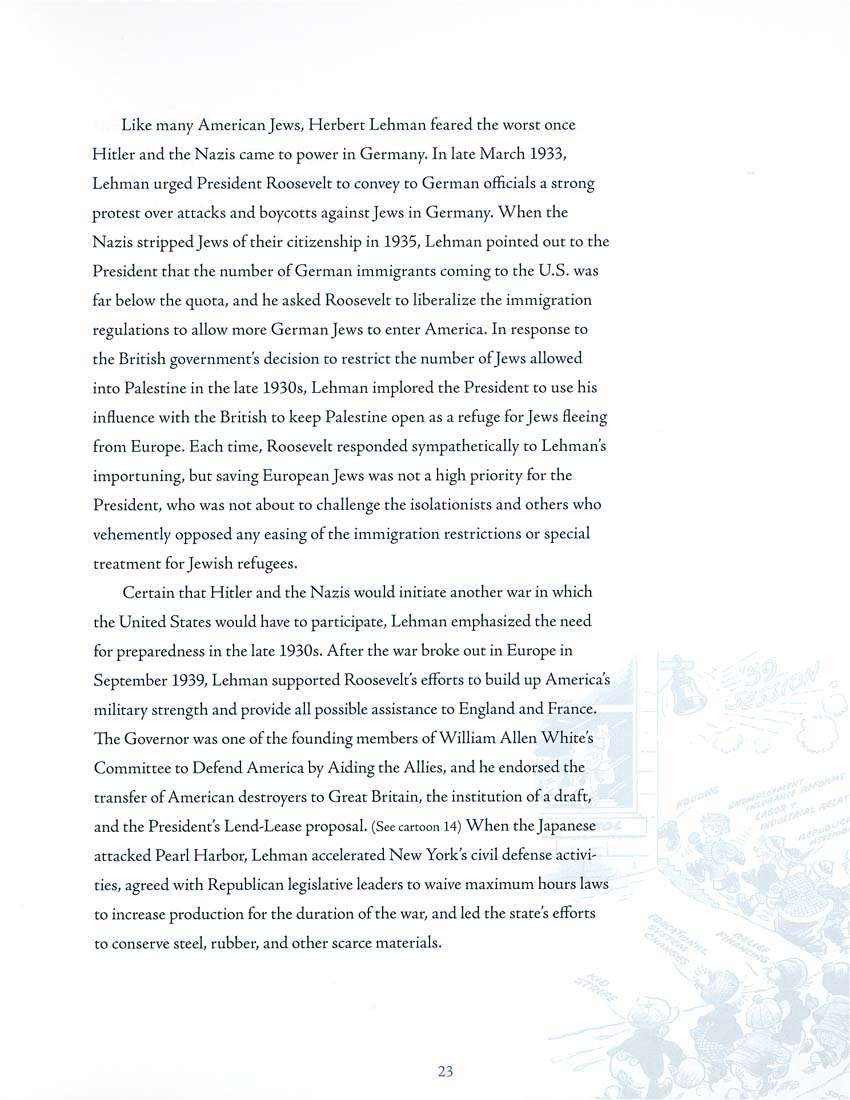Like many American Jews, Fderbert Lehman feared the worst once
Hitler and the Nazis came to power in Germany. In late March 1933,
Lehman urged President Roosevelt to convey to German officials a strong
protest over attacks and boycotts against Jews in Germany. When the
Nazis stripped Jews of their citizenship in 1935, Lehman pointed out to the
President that the number of German immigrants coming to the U.S. was
far below the quota, and he asked Roosevelt to liberalize the immigration
regulations to allow more German Jews to enter America. In response to
the British government's decision to restrict the number of Jews allowed
into Palestine in the late 1930s, Lehman implored the President to use his
influence with the British to keep Palestine open as a refuge for Jews fleeing
from Europe. Each time, Roosevelt responded sympathetically to Lehman's
importuning, but saving European Jews was not a high priority for the
President, who was not about to challenge the isolationists and others who
vehemently opposed any easing of the immigration restrictions or special
treatment for Jewish refugees.
Certain that Hitler and the Nazis would initiate another war in which
the United States would have to participate, Lehman emphasized the need
for preparedness in the late 1930s. After the war broke out in Europe in (__«!__ y
September 1939, Lehman supported Roosevelt's efforts to build up America's ■ ■<^^/'"'- --:;- -^' ^fji^i^
military strength and provide all possible assistance to England and France. '.-ZS „,Vv/
The Governor was one of the founding members of William Allen White's ■ ^ ^-,,- -
Committee to Defend America by Aiding the Allies, and he endorsed the
transfer of American destroyers to Great Britain, the institution of a draft, ■" .^i^ii^'
and the President's Lend-Lease proposal. (See cartoon 14) When the Japanese
attacked Pearl Harbor, Lehman accelerated New York's civil defense activi¬
ties, agreed with Republican legislative leaders to waive maximum hours laws
to increase production for the duration of the war, and led the state's efforts
to conserve steel, rubber, and other scarce materials. '^a^-V^^
|








